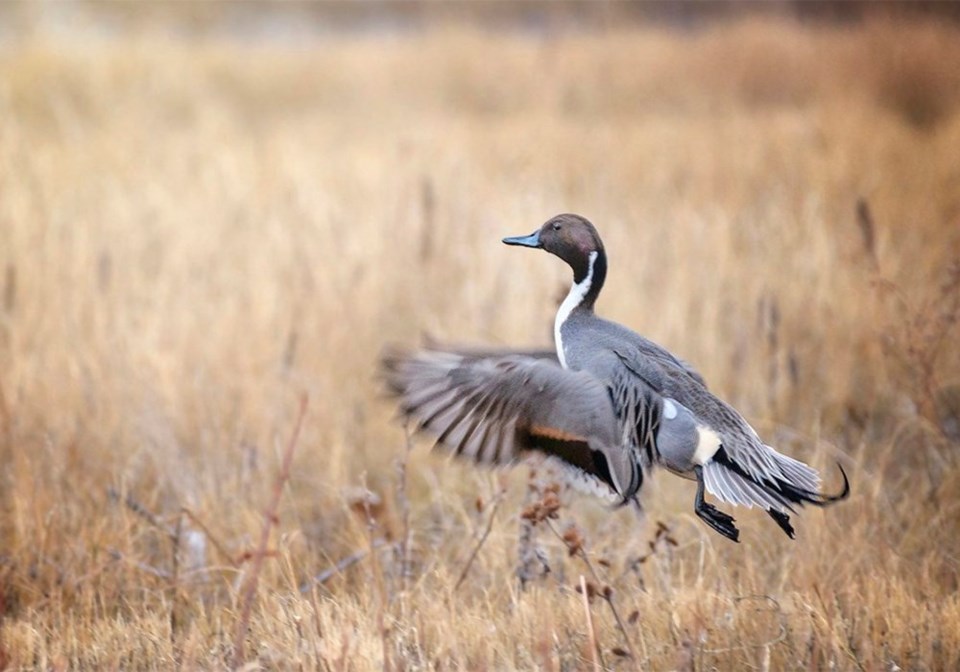The “Habitat-Friendly Winter Wheat Ecolabel” will be available for products using western Canadian winter wheat, which provides much-needed habitat for a number of nesting species like Northern Pintails.
“Field operations on farms are greatly reduced during peak nesting periods in the spring,” said Karli Reimer, Ducks Unlimited Canada’s national communications manager.
“This eco-label sends a clear signal to farmers and others who work in agriculture to grow and promote recognition of the unique benefits it brings to a sustainable food system.”
Winter wheat provides green ground cover for birds. Spring crops don’t offer that amount of cover, and seeding the crops often destroys nests and drives off the birds. By seeding winter wheat in the fall and leaving winter wheat fields mostly untouched during spring, farmland can host more waterfowl and other types of bird, while not losing agricultural productivity.
“It’s been a profitable crop to grow,” said East Selkirk, Man., farmer Doug Martin, whose farm has grown winter wheat since the 1990s.
The crop allows him to direct-seed into canola stubble. Due to the heavy soil and wet conditions of his land, many crops require tillage, so incorporating winter wheat helps lower the average amount of tillage the farm is forced to do.
He’s hoping the food product labels make it even more attractive to grow winter wheat.
“Maybe our sustainable practices on farms will get recognized by industry and consumers,” said Martin.
Already two companies have embraced the eco-label. Quebec miller Les Moulins de Soulanges and global liquor company Beam Suntory are planning to use the label to inform consumers how some of their products’ ingredients are good for wild birds.
“We know that people are concerned and thinking more and more about the environment, and thinking about what role they can play to support it,” said Daniel Ramage, Cereals Canada’s director of market access and trade policy.
“By buying these product, you’ll be supporting winter wheat production and ultimately supporting nesting habitat for wildlife on the Prairies.”
The initiative is supported by the Alberta Wheat Commission, Saskatchewan Winter Cereals Development Commission and Manitoba Crop Alliance.

